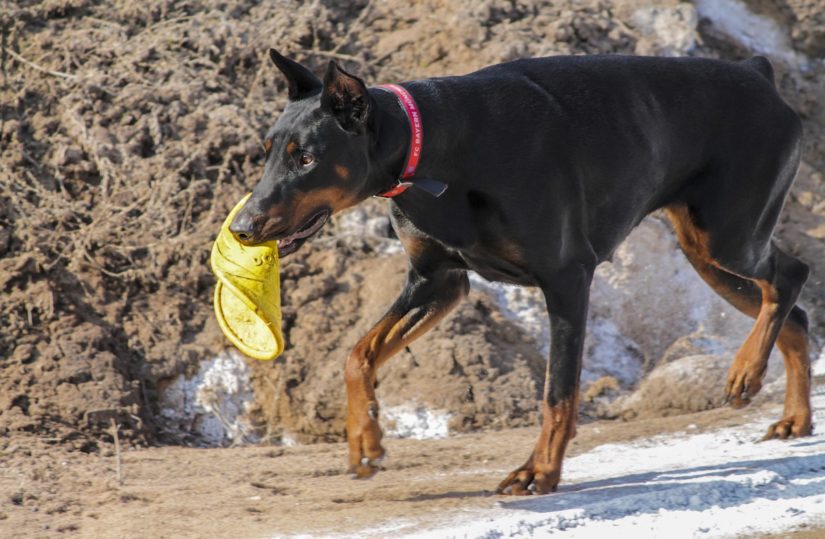In 2016, the College of Veterinarians of British Columbia (CVBC) voted to prohibit their membership from cropping ears or docking tails of dogs for cosmetic purposes. A similar vote took place in 2023 to ban the practice of devocalization (“debarking”) in dogs.
- Ear cropping: the removal of part or all of a dog’s ear
- Tail docking: the removal of part or all of a dog’s tail
- Devocalization: the partial or full removal of a dog’s vocal cords to reduce or prevent the volume, pitch or intensity of their bark
In accordance with section 231 of the CVBC Ethics and Standards (PDF), these procedures may only be done to treat injury or disease. As such, if a veterinarian performed these procedures for reasons other than treatment, they would be in breach of their ethics and standards and also potentially in breach of the Criminal Code and Prevention of Cruelty to Animals Act (the “PCA Act”).

The BC SPCA’s position on these procedures
It is the position of the BC SPCA that unless medically required, the cosmetic docking of tails or cropping of ears without the use of anesthetics or analgesia causes pain and suffering as reported by both the CVBC and CVMA. We also believe that devocalization deprives dogs of an essential form of communication. Not only can this cause them significant stress, but devocalization fails to address the underlying reasons why dogs bark in the first place. Read more about our position on cosmetic and other non-therapeutic alterations.
Complaints about tail docking, ear cropping and devocalization may be investigated and, provided they meet the charge approval standard as set out by the Crown, recommendations for charges pursuant to either the Criminal Code of Canada or the provincial Prevention of Cruelty to Animals Act will be forwarded to Crown Counsel.

The impacts of these procedures on dogs
Tail docking, ear cropping and devocalization cause unnecessary pain and suffering to a dog when the procedures are not medically necessary to treat injury or disease.
Studies have demonstrated that dogs who have had their tails docked display signs of chronic pain and heightened pain sensitivity. Dogs who have been debarked are at risk of complications, including:
- Short-term: bleeding, swelling, infection, coughing and gagging
- Long-term: chronic coughing or gagging, aspiration pneumonia, and airway narrowing and scarring, which can lead to noisy breathing, respiratory distress, exercise intolerance, heat intolerance and collapse
Tails, ears and vocalizations also play a significant role in communication for canines, both with other dogs and to humans. Docked tails have been shown to result in more frequent aggressive encounters with other dogs. Tail and ear activity are closely linked with other dog behaviours and, together with vocalizations, allow dogs to signal both negative and positive emotions, moods and intentions.
